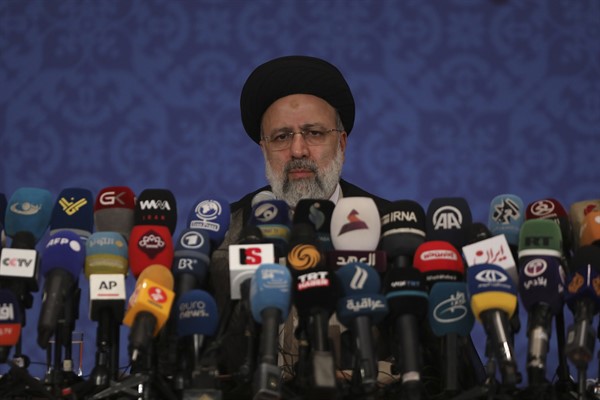Since last April, the U.S. has been engaged in indirect negotiations with Iran on restoring the 2015 deal limiting Tehran's nuclear program known formally as the Joint Comprehensive Plan of Action, or JCPOA. If these talks succeed, or should they fail, the impact will reverberate across a range of issues beyond the nonproliferation file over which Washington and Tehran are at odds.
When the Trump administration withdrew from the JCPOA in 2018, it laid out 12 demands addressing various aspects of Iranian policy it wanted Tehran to change. Of the concerns it identified, three directly dealt with the nuclear program, and one addressed bilateral issues—namely, the release of U.S. citizens along with those of its allies detained by the Islamic Republic. The rest addressed Iran’s regional posture, including its ballistic missile development, which Washington wanted stopped, and its network of proxies and partners from Yemen to the Levant, which the U.S. wanted rolled back. To achieve those ends, the Trump administration primarily used financial pressure, with extensive deployment of unilateral sanctions that significantly damaged the Iranian economy, but produced little return on either the nuclear front, where Iran began to ramp up its activity, or in blunting Iranian capabilities across the Middle East.
In terms of the threats from Iran as seen by Washington, the Biden administration’s list is unlikely to differ substantially from its predecessor’s: the danger of reaching nuclear weapons capability, advancements in conventional weaponry and Tehran’s ability to project influence against U.S. interests and those of its allies via what it dubs the “Axis of Resistance,” which includes the Houthis in Yemen, Shiite paramilitary units in Iraq, pro-Assad forces in Syria, Hezbollah in Lebanon, and Hamas and Palestinian Islamic Jihad in Gaza. What has changed, however, is the sequence and means by which the Biden team is approaching these issues.

